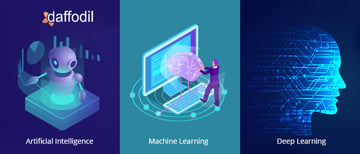
Improving self-service options using AI has become critical for providing the speedy and tailored support that users expect. By integrating AI, Software as a Service (SaaS) companies can provide a better experience, fulfill changing client expectations, and maintain a competitive edge in the market. The strategic implementation of AI into self-service procedures is not only an upgrade but an essential task for SaaS companies seeking to succeed in a consumer-centric digital landscape.
In this blog let us explore the transformative impact of AI on self-service in the SaaS industry, following its progress and highlighting the innovative solutions that are altering how users interact with the services.
Use Cases of Self-service Using AI in SaaS Applications
Self-service using AI in SaaS applications is gaining popularity since it allows users to solve problems and access information without requiring manual support.
1. Personalized User Onboarding:
- Adaptive Tutorials: AI-driven adaptive training can provide personalized guidance to users by modifying the content based on their initial interactions. This ensures that the training is focused on the features that users are most likely to require daily.
- Profile-Based Recommendations: AI uses user profiles, industry details, and historical data to recommend initial settings and configuration processes. This personalized approach can reduce the setup time and improve the overall user experience by making appropriate recommendations from the outset.
2. Customer Support and Help Desk:
- Automated Password Resets and Account Assistance: Chatbots can make resetting passwords and unlocking accounts easier, reducing the need for human assistance.
- Guidance for Troubleshooting: AI-powered virtual assistants can provide step-by-step solutions to common technological problems, such as internet connectivity issues or software setup errors.
3. Assistance with Product Usage:
- Product guidance: Customized tutorials that respond to user interactions and queries that can make it simple to introduce and understand key product features.
- In-App Suggestions: By analyzing user actions, AI can provide timely advice and notifications about features that can improve the user's work or experience.
4. Account Management:
- Subscription Modifications: An AI assistant can facilitate users to change their service subscriptions by providing upgrades, downgrades, or personalized plans based on usage patterns.
- Billing Inquiries: AI can analyze previous transactions to respond to billing queries, detail charges, and manage refund requests.
5. Support for E-commerce:
- Personalized Product Suggestion: AI can improve the shopping experience by proposing products based on the user's past purchases and browsing history.
- Order Tracking & Support: An AI assistant can quickly update orders, facilitate address changes, and assist with returns and refunds.
Advanced AI Technologies Reshaping User Experience
The SaaS industry is undergoing significant changes due to the introduction of advanced AI technologies. These developments are providing opportunities to improve the way users interact with services, including various technologies such as:
- Predictive analytics: Predictive analytics is a game-changer in SaaS platforms. It harnesses historical data and AI to anticipate what users need, making their experience personalized. By predicting future actions, the system can proactively provide personalized data, recommendations, or services. This not only increases user satisfaction but also keeps them engaged with timely and relevant offers.
- Deep Learning: Deep Learning can be used in SaaS applications to perform complex tasks including image and speech recognition, natural language processing, and sentiment analysis. This technology allows SaaS companies to gain a deeper understanding of user preferences and behaviors, enabling them to make more nuanced changes.
- Conversational AI: It enhances the functionality of the SaaS platform by providing support and guidance to users by responding to queries. Advanced conversational AI can also monitor user requirements based on ongoing interactions and provide dynamic solutions and support.
ALSO READ: Cost-effective AI Development Environments on the Cloud
Overcoming Challenges Implementing AI for Self-service in SaaS Applications
- Data Privacy Concerns: Strong data governance policies that specify data maintenance and security procedures should be implemented by businesses to comply with data privacy laws like the CCPA and GDPR. Anonymization is a technique that eliminates personally identifiable information from user data to secure it. It is also necessary to conduct regular audits of AI systems to ensure these privacy regulations are followed. Businesses must adopt this technique to safely integrate AI while maintaining user privacy.
- Quality of Data Sets: To address the challenge of obtaining high-quality data for AI systems, businesses should prioritize data cleansing and preparation. This improves the accuracy as well as consistency of the data utilized for AI learning. Furthermore, extending the dataset using data augmentation methods can increase its diversity and volume, which is essential for training strong AI models. It is also critical to continuously check for and fix any biases in the data, ensuring that it accurately represents the various circumstances that the AI will encounter. These procedures are critical to the effectiveness and dependability of AI systems in self-service applications.
- Integration with Existing Systems: Integrating AI into existing systems can be difficult and expensive. To address this, organizations should adopt a modular approach that allows for minor modifications and improved management. APIs and microservices designs can help to simplify the integration process and increase flexibility. An organized, gradual deployment of AI, guided by a comprehensive roadmap, allows a smoother transition with less disruption to existing operations. This methodical approach enables the effective integration of AI into older business processes.
- User Trust and Acceptance: To overcome user concerns regarding AI-powered self-service, organizations should prioritize transparency, and understand how AI works and its benefits. Introducing AI capabilities gradually can help users get used to the new technology. Actively getting user feedback and making constant modifications can gradually increase trust and confidence in automated systems.
ALSO READ: Top 5 Keys To A Successful SaaS Solution For Healthcare
Self Service: What to Expect in the Upcoming Years
- Advanced Personalization: AI will be able to use data analytics to better understand specific client preferences and behavior patterns. It can enable self-service systems to foresee what users need and suggest specific solutions, providing a personalized experience for each user.
- Conversational AI and Natural Language Processing (NLP): As conversational AI and NLP technologies evolve, it will allow for more human-like interactions with self-service platforms, offering users intuitive and engaging experiences due to AI's ability to address complex queries.
- Predictive Customer Support: AI systems will be able to predict issues and provide proactive solutions in addition to responding to user requests. Predictive customer care can improve client satisfaction by addressing issues before they impact the end user.
- Integration of Augmented and Virtual Reality: It can enhance service systems by creating personalized user experiences. AR allows users to see virtual products in real settings, while VR provides a fully interactive virtual environment. AI tailors these experiences to user preferences, improving engagement and efficiency.
- Emotion Recognition and Response: AI can employ emotion recognition technology to detect a client's emotion during interactions and modify responses accordingly, resulting in a more empathetic self-service experience.
- Ethical Considerations: As AI becomes more often utilized in self-service, there will be more focus on ethical AI practices to assure privacy and accountability in automated decision-making.
ALSO READ: The Empathetic Algorithm: AI's Emerging Role in Emotional UX
Final Thoughts
Integrating AI into SaaS self-service is a game-changer as it sets new benchmarks for user satisfaction and engagement. The use of predictive analytics and conversational AI is enhancing user experiences and making service operations more efficient, leading to higher levels of customer engagement and loyalty.
Adopting AI into systems comes with challenges such as ensuring data privacy and establishing seamless system compatibility, these can be overcome by planned implementation and transparent communication. As the SaaS industry evolves, AI will play a more significant part in self-service, providing more intuitive and responsive experiences that not only satisfy customers but also drive business growth. Adopting AI is critical for SaaS providers seeking to maintain a competitive advantage and develop long-term customer loyalty in an increasingly digital world.
If you want to accelerate issue resolution with AI self-service in your SaaS application, schedule a no-obligation consultation with our specialists now!




